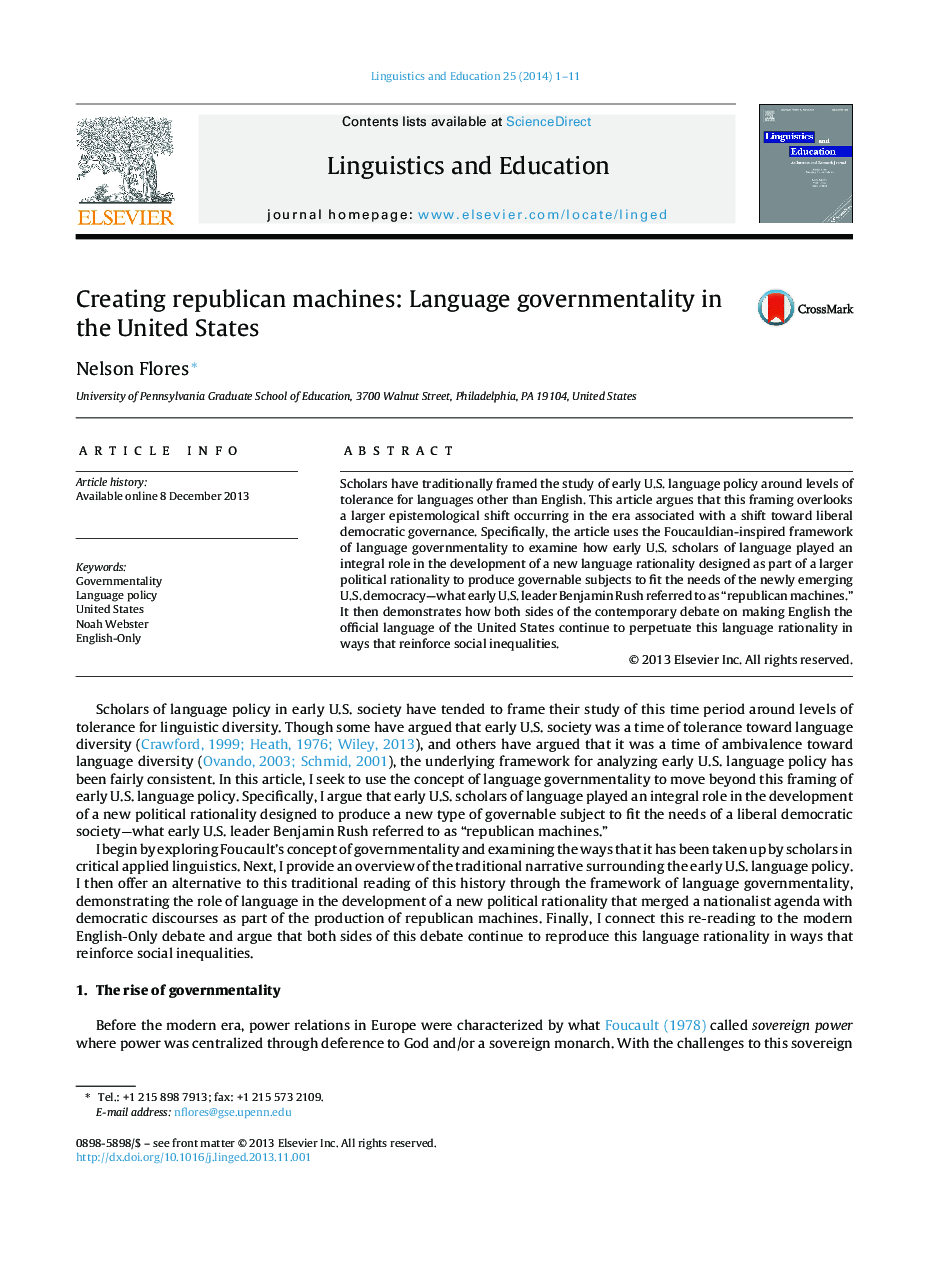| Article ID | Journal | Published Year | Pages | File Type |
|---|---|---|---|---|
| 366151 | Linguistics and Education | 2014 | 11 Pages |
•Study of early U.S. language policy has focused on language tolerance of the era.•Language governmentality opens up the possibility of asking different questions.•Noah Webster was pioneer in republican machine variant of language governmentality.•This framework continues to shape debates surrounding current U.S. language policy.
Scholars have traditionally framed the study of early U.S. language policy around levels of tolerance for languages other than English. This article argues that this framing overlooks a larger epistemological shift occurring in the era associated with a shift toward liberal democratic governance. Specifically, the article uses the Foucauldian-inspired framework of language governmentality to examine how early U.S. scholars of language played an integral role in the development of a new language rationality designed as part of a larger political rationality to produce governable subjects to fit the needs of the newly emerging U.S. democracy—what early U.S. leader Benjamin Rush referred to as “republican machines.” It then demonstrates how both sides of the contemporary debate on making English the official language of the United States continue to perpetuate this language rationality in ways that reinforce social inequalities.
